Filter by
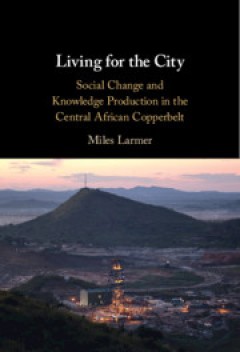
Living for the city : social change and knowledge production in the Central A…
Living for the City is a social history of the Central African Copperbelt, considered as a single region encompassing the neighbouring mining regions of Zambia and the Democratic Republic of Congo. The Haut Katanga and Zambian Copperbelt mine towns have been understood as the vanguard of urban 'modernity' in Africa. Observers found in these towns new African communities that were experiencing w…
- Edition
- -
- ISBN/ISSN
- 9781108973120
- Collation
- xiii, 380 p. : ill
- Series Title
- -
- Call Number
- 967 LAR l
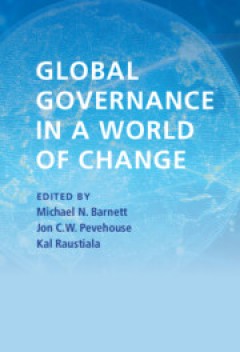
Global governance in a world of change
Global governance has come under increasing pressure since the end of the Cold War. In some issue areas, these pressures have led to significant changes in the architecture of governance institutions. In others, institutions have resisted pressures for change. This volume explores what accounts for this divergence in architecture by identifying three modes of governance: hierarchies, networks, …
- Edition
- -
- ISBN/ISSN
- 9781108915199
- Collation
- xii, 381 p. : ill.
- Series Title
- -
- Call Number
- 341.2 BAR g
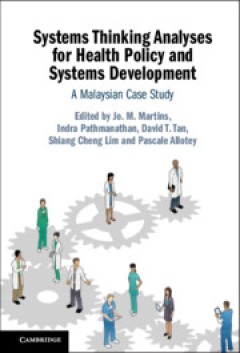
Systems thinking analyses for health policy and systems development : a Malay…
Health systems are fluid and their components are interdependent in complex ways. Policymakers, academics and students continually endeavour to understand how to manage health systems to improve the health of populations. However, previous scholarship has often failed to engage with the intersections and interactions of health with a multitude of other systems and determinants. This book ambiti…
- Edition
- -
- ISBN/ISSN
- 9781108954846
- Collation
- xlvii, 510 p. : ill.
- Series Title
- -
- Call Number
- 362.109595 MAR s
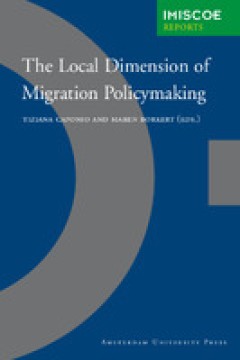
The local dimension of migration policymaking
This book prompts a fresh look on immigrant integration policy. Revealing just where immigrants and their receiving societies interact everyday, it shows how societal inclusion is administered and produced at a local level. The studies presented focus on three issue areas of migration policy - citizenship, welfare services and religious diversity - and consider cities in very different national…
- Edition
- 22
- ISBN/ISSN
- 9789048512430
- Collation
- 204 p. : ill.
- Series Title
- -
- Call Number
- 325.4 CAP t
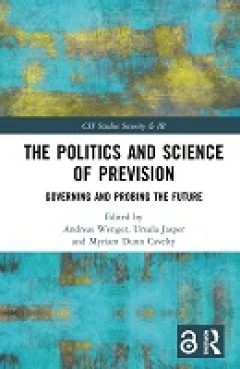
The politics and science of prevision : governing and probing the future
"This book inquires into the use of prediction at the intersection of politics and academia, and reflects upon the implications of future-oriented policymaking across different fields. The volume focuses on the key intricacies and fallacies of prevision in a time of complexity, uncertainty and unpredictability. The first part of the book discusses different academic perspectives and contributio…
- Edition
- 10
- ISBN/ISSN
- 9780367900748
- Collation
- xi, 272 p. : ill.
- Series Title
- -
- Call Number
- 320.6 WEN t
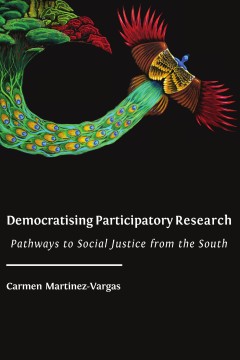
Democratising Participatory Research: Pathways to Social Justice from the South
In this book Carmen Martinez-Vargas explores how academic participatory research and the way it is carried out can contribute to more, or less, social justice. Adopting theoretical and empirical approaches, and addressing multiple complex, intersectional issues, this book offers inspiration for scholars and practitioners to open up alternative pathways to social justice, viewed through a Global…
- Edition
- -
- ISBN/ISSN
- 9781800643109
- Collation
- x, 244 p. : ill. ; 15.6m.
- Series Title
- -
- Call Number
- 321.872 MAR d
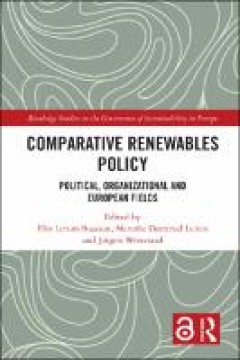
Comparative renewables policy : political, organizational and European fields
Challenging one-eyed technology-focused accounts of renewables policy, this book provides a ground-breaking, deep-diving and genre-crossing longitudinal study of policy development. The book develops a multi-field explanatory approach, capturing inter-relationships between actors often analyzed in isolation. It provides empirically rich and systematically conducted comparative case studies on t…
- Edition
- -
- ISBN/ISSN
- 9780429198144
- Collation
- xvii, 259 p. : ill.
- Series Title
- Routledge Studies on the Governance of Sustainability in Europe
- Call Number
- 333.794094 BOA c
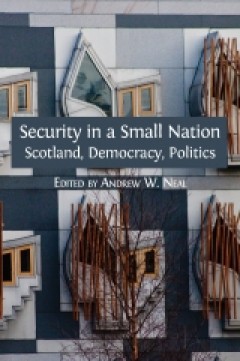
Security in a small nation : scotland, democracy, politics
The 2014 Referendum on Scottish independence sparked debate on every dimension of modern statehood. Levels of public interest and engagement were unprecedented, as demonstrated by record-breaking voter turnout. Yet aside from Trident, the issue of security was relatively neglected in the campaigns, and there remains a lack of literature on the topic. In this volume Andrew Neal has collated a va…
- Edition
- -
- ISBN/ISSN
- 9781783742707
- Collation
- ix, 256 p. ; ill
- Series Title
- -
- Call Number
- 355.0309411 NEA s

Essays on Paula Rego: smile when you think about hell
In these powerful and stylishly written essays, Maria Manuel Lisboa dissects the work of Paula Rego, the Portuguese-born artist considered one of the greatest artists of modern times. Focusing primarily on Rego’s work since the 1980s, Lisboa explores the complex relationships between violence and nurturing, power and impotence, politics and the family that run through Rego’s art. Taking …
- Edition
- -
- ISBN/ISSN
- 9781783747580
- Collation
- xv, 492 p. : ill. : ind. ; 24 cm
- Series Title
- -
- Call Number
- 759.421 LIS e
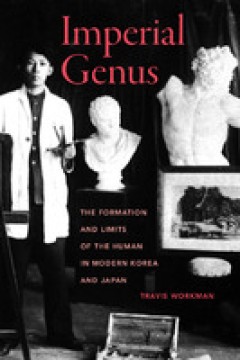
Imperial genus : the formation and limits of the human in modern Korea and Japan
"Imperial Genus begins with the turn to world culture and ideas of the generally human in Japan’s cultural policy in Korea in 1919. How were concepts of the human’s genus‑being operative in the discourses of the Japanese empire? How did they inform the imagination and representation of modernity in colonial Korea? Travis Workman delves into these questions through texts in philosophy, lit…
- Edition
- -
- ISBN/ISSN
- 9780520964198
- Collation
- vii, 307 p. : ill,
- Series Title
- -
- Call Number
- 951.903 WOR i
 Computer Science, Information & General Works
Computer Science, Information & General Works  Philosophy & Psychology
Philosophy & Psychology  Religion
Religion  Social Sciences
Social Sciences  Language
Language  Pure Science
Pure Science  Applied Sciences
Applied Sciences  Art & Recreation
Art & Recreation  Literature
Literature  History & Geography
History & Geography